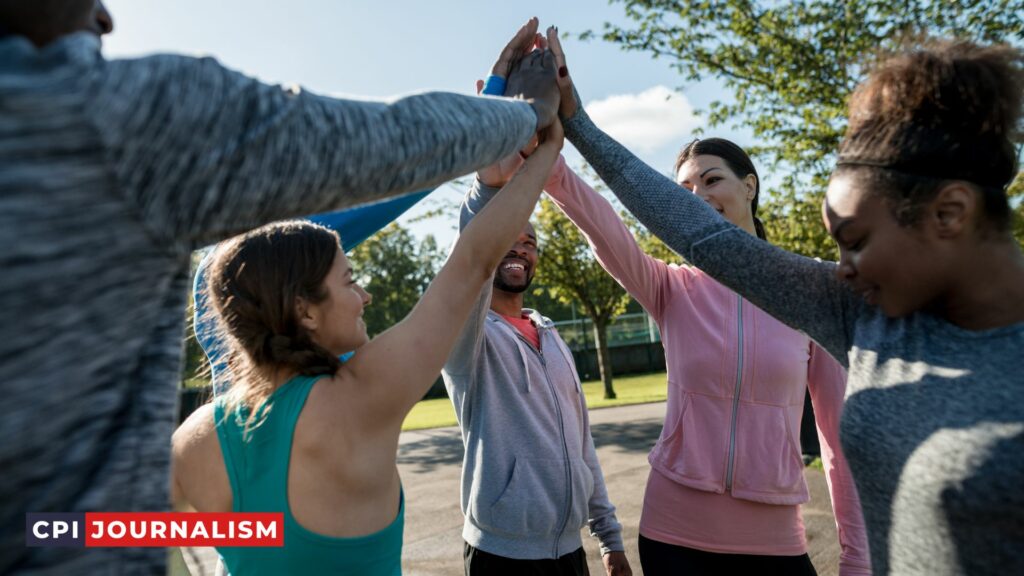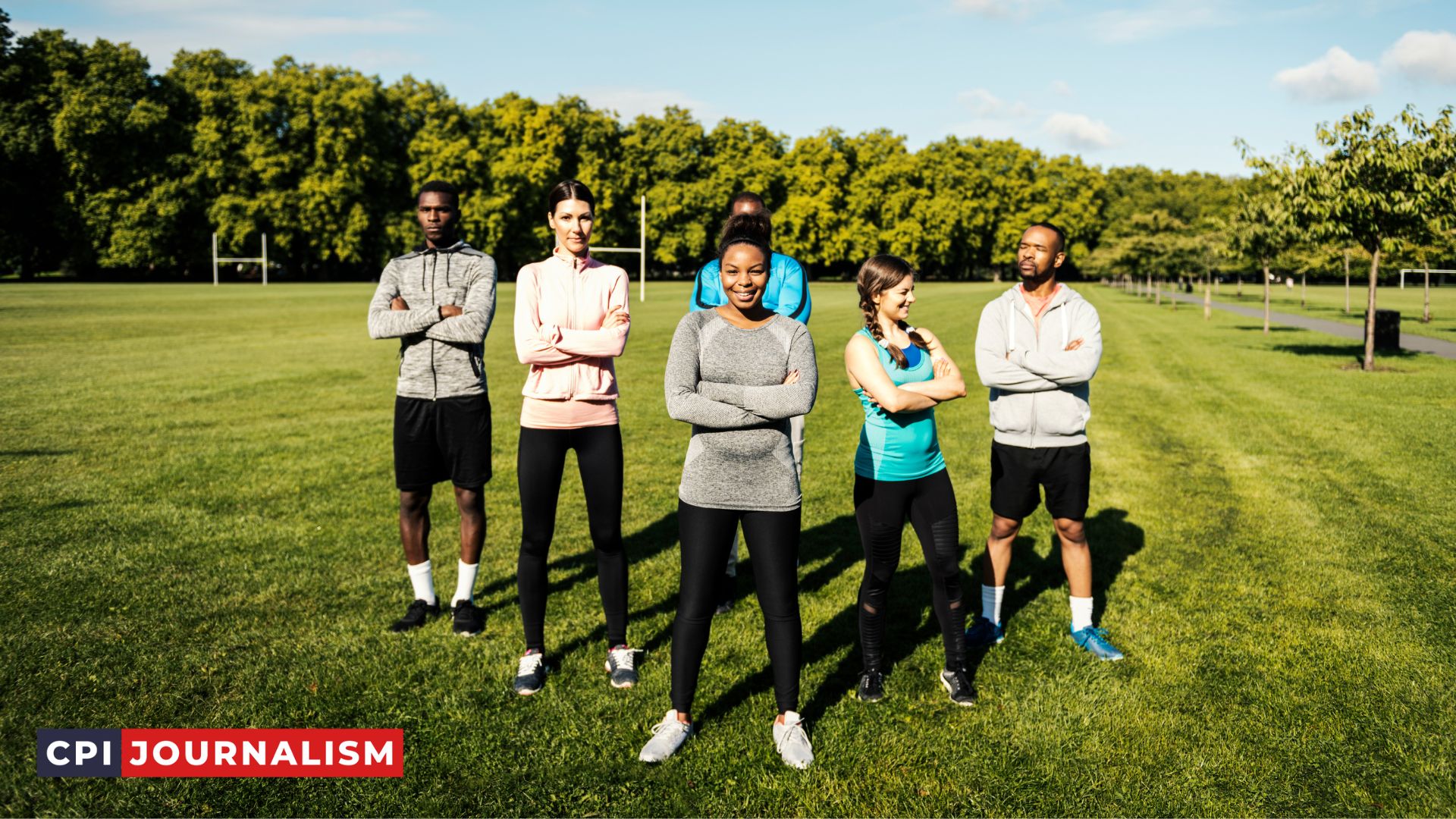What Are The Best Practices For Sports Journalists When Working With Athletes And Sports Teams On Sponsored Content?
As an experienced sports journalist, I have found that the best practices when working with athletes and sports teams on sponsored content are key to producing content that is both engaging and accurate.
It is essential that journalists take the time to develop a relationship with their sources and ensure that the content produced meets their high standards for quality and integrity.
In this article, I will discuss the various best practices for sports journalists when working with athletes and sports teams on sponsored content. From researching the athletes and the teams involved to ensuring the content follows ethical guidelines, I will provide the advice necessary to produce quality work.
A. Establish Clear Guidelines
As a sports journalist, it is important to establish clear guidelines when working with athletes and sports teams on sponsored content.
The guidelines should outline the expectations of both parties, including the content that will be produced and the timeframe for delivering it. It is also important to set out the terms of payment, if any, and how the content will be distributed.
These guidelines should be discussed and agreed upon between the journalist, the athlete or sports team, and the sponsor, to ensure that all parties are on the same page. These guidelines should be clearly outlined in a contract or agreement and should be signed by all parties involved.
When it comes to content, specify the type of content that will be produced and how it will be presented.
For example, will the content be in the form of a written article, an audio podcast, or a video interview? Also, decide who will be responsible for creating the content and whether outside professionals will be hired to help.
In terms of promotion, decide how the content will be distributed and promoted. Will it be posted on the athlete’s or team’s social media accounts, on the website of the journalist or sponsor, or through other channels? Also, decide on the timeline for producing and releasing the content.
When it comes to payment, decide whether the journalist or the athlete/team will be compensated for their work. Set out in the agreement how much the journalist will be paid and how the payment will be made (by the sponsor, the athlete, or the team).
It is also important to set out in the agreement any restrictions on the content and promotion. For example, the agreement should specify which topics are off-limits and any restrictions on who can be featured in the content.
By establishing clear guidelines at the outset, sports journalists can ensure that they are working with athletes and sports teams in a professional way and that their sponsored content meets the expectations of all involved.
1. Define The Scope Of The Content
As a sports journalist, it is important to first define the scope of the content you will be producing. This includes understanding the topics you will be covering, the type of content you will be creating, and the timeframe for the project.
When working with athletes and sports teams on sponsored content, it is important to be clear on the expectations and parameters of the project.
You should get clear direction from the athlete or sports team on what topics they wish to cover, and if there are any particular angles that they would like you to focus on.
Additionally, you should discuss the type of content that will be produced, such as articles, videos, or podcasts. Finally, you should agree on a timeline for the project, so that you can deliver the content on time and to the highest standards.
By clearly defining the scope of the content before you begin the project, you will be able to ensure that you are able to deliver a product that meets the expectations of the athlete or sports team.
This will allow you to maintain a positive and productive relationship with your clients and ensure that you are producing the highest quality content.
2. Set Expectations for Quality
When it comes to sponsored content, quality should never be compromised. As a journalist, it is your responsibility to ensure that the content you produce meets the highest standards of accuracy, integrity, and professionalism.
The best way to do this is to set expectations for quality at the outset of any collaboration with an athlete or sports team. Establishing a clear understanding of the quality standards you require before you start the project will ensure that everyone is on the same page.
For example, you could set expectations around the accuracy of information, the level of detail to be included in the content, the clarity of writing, and the use of appropriate language. You could also require that any sponsored content adhere to any relevant laws or regulations related to the project.
By setting expectations for quality at the outset, you can ensure that the sponsored content you produce meets the highest standards. This will help to protect the integrity of your work and ensure that you are producing content that is of the highest quality.
3. Establish a Timeline
Once you have determined the scope of the project with the athlete/team, it is important to establish a timeline for the completion of the project.
This timeline should account for communication between you and the athlete/team, research, writing, and editing. It should also include other tasks such as photo/video shoots, acquiring any necessary licenses or permissions, etc.
The timeline should be broken down into smaller, more manageable tasks with specific deadlines. This will help keep the project organized and on track.
It is important to communicate the timeline to all parties involved in the project so that everyone is aware of their roles and responsibilities.
It is also important to be flexible with the timeline. The athlete/team may have other commitments or events that need to be taken into consideration. Be prepared to adjust the timeline as necessary.
Finally, it is important to clearly communicate any changes to the timeline. Make sure that all parties involved are aware of any changes and that the timeline is updated accordingly.
This will ensure that the project is completed on time and that all expectations are met.
4. Outline Payment Terms
As a sports journalist, it is important that you outline the payment terms for your sponsored content work prior to beginning the project. This will ensure that both parties are in agreement and expectations are clear from the outset.
When discussing payment terms, be sure to consider the following:
1. Payment Amount: Clearly outline the total amount to be paid for the project. This should include any additional fees or expenses that may be incurred.
2. Payment Method: Determine the payment method to be used, such as PayPal, direct deposit, or cheque.
3. Payment Schedule: Specify when payment(s) are to be made, such as upon completion of the project or in installments.
4. Late Payment Penalties: Include any interest or late payment fees that may be applicable if payments are not made on time.
These payment terms should be clearly stated in a written contract. This will help protect you, the journalist, and provide a reference for both parties in the event of any dispute.
B. Develop a Relationship With The Athlete or Team
As a sports journalist, it is crucial to build a relationship with the athlete or team you are working with. This can be done through regular communication and getting to know the athlete or team on a more personal level.
This relationship will help the journalist better understand the athlete or team, as well as their motivations and perspectives. It is important to be respectful and professional when communicating, as well as build trust and mutual understanding.
It is also important to be aware of any potential conflicts of interest that might arise from the relationship.
For example, if the journalist is receiving compensation for their work or other benefits, this should be disclosed to the athlete or team. It is important to maintain transparency and uphold journalistic integrity.
In addition, the journalist should make sure to communicate any deadlines or requirements up front. This will ensure that both parties understand the expectations and can plan accordingly.
Being proactive and organized will help ensure that the sponsored content is created and delivered in a timely manner.
Finally, the journalist should make sure to thank the athlete or team for their time and effort. Acknowledging their contributions and expressing gratitude will help to maintain a positive and professional relationship.
1. Get to Know the Athlete or Team
As a sports journalist, it’s important to get to know the athlete or team you are working with on sponsored content.
Take the time to have conversations with them, read up on their accomplishments, and gain an understanding of their values and motivations. This will help you create content that is tailored to their individual needs and interests.

Additionally, it’s important to be aware of the current sports landscape and any potential controversies or newsworthy moments that may be of interest to your audience. Doing this research can help you create content that is relevant and engaging.
Finally, it’s essential to establish a rapport with the athlete or team. Show genuine interest in their story and take care to ensure that your content reflects their values and goals.
This will help you create content that resonates with your audience, while also creating a strong relationship between you and the athlete or team.
2. Understand Their Goals and Objectives
One of the most important practices for sports journalists when working with athletes and sports teams on sponsored content is to understand the goals and objectives of the project.
Whether it is an article, video, or podcast, it is essential to understand the purpose of the project and what the athlete or sports team is hoping to accomplish. Knowing their goals and objectives will help you create content that meets their needs.
It is also important to find out what kind of content the athlete or sports team is looking for. Do they want a feature story, an opinion piece, or a more in-depth analysis? Additionally, you should inquire about the target audience, the intended message, and any branding requirements.
Finally, you should ask questions about the timeline and any restrictions on the content. Knowing the timeline will help you create a plan of action and determine how much time you will need to complete the project.
Understanding any restrictions on the content will also help you create content that meets the athlete or sports team’s needs.
3. Respect Their Time and Commitments
As a sports journalist, one of the best practices you can follow when working with athletes and sports teams on sponsored content is to respect their time and commitments.
It is essential to be punctual for any meetings, interviews, or events. If you are running late or need to reschedule, make sure to provide as much notice as possible.
In addition, it is also important to respect any contractual obligations or commitments that the athlete or team has. If they are unable to participate in a particular event or provide certain content, respect their decision and make sure to abide by any restrictions they have in place.
Finally, make sure to respect the athlete’s or team’s privacy. Even if the content is sponsored, it is important to remember that they are still people and should be treated with respect.
Do not take or share any photos or videos without permission, and make sure to treat their personal information with the utmost discretion.
4. Maintain Professionalism
Professionalism is an important part of working with athletes and sports teams on sponsored content. As a journalist, it’s important to maintain a level of respect for the athlete and team you are working with, as well as for the content that you are creating.
First and foremost, it’s important to be honest and transparent with the athlete and team you are working with.
Be sure to disclose any financial or other interests you may have in the sponsored content. If there is any doubt as to your objectivity, be sure to explain why you are confident in the content you are providing.
It’s also important to maintain a level of respect for the athlete and team you are working with. Make sure you are respectful of the athlete’s time and privacy, as well as their opinions. Give the athlete or team ample time to review and approve any content before it is published.
Finally, be sure to maintain a professional relationship with the athlete and team. Do not take advantage of their trust or their time and strive to be a reliable source for accurate, timely and engaging content.
By following these steps, you can ensure that the athlete and team have a positive experience in working with you on sponsored content.
C. Understand the Legal Implications
Working with athletes and sports teams on sponsored content comes with certain legal implications that must be taken into consideration. It is vital for sports journalists to be aware of these legal implications in order to ensure that the content they create is legally sound.
First and foremost, sports journalists must be aware of the various laws and regulations that apply to sponsored content.
Different countries have different laws and regulations governing sponsored content, so it is important to research the specific legal requirements in the region where the content is being published.
It is also important to understand the laws and regulations governing the use of trademarks, copyrights, and other intellectual property, as violation of these laws can result in significant legal repercussions.
Sports journalists must be aware of the laws governing the use of images, videos, and other copyrighted material, and must obtain the appropriate permissions before incorporating such materials into their content.
Finally, sports journalists should be aware of the laws and regulations governing the use of athlete endorsements. In many countries, athlete endorsements are heavily regulated, and sports journalists must ensure that their content does not violate any of these regulations.
By understanding and adhering to the legal implications of working with athletes and sports teams on sponsored content, sports journalists can ensure that their content is legally sound and compliant with all applicable laws and regulations.
1. Ensure Compliance with FTC Guidelines
As a sports journalist, it is important to ensure that your sponsored content complies with the Federal Trade Commission (FTC) guidelines.
The FTC requires that all sponsored content be clearly and conspicuously disclosed, regardless of the form it takes. It is important to note that the disclosure should be placed at the beginning of the content, not at the end or hidden somewhere in the middle.
The FTC also recommends that sponsored content be labeled as “sponsored” or “ad.” Additionally, it is important to be transparent about any payment or other compensation received for the content.
If you have received any payment or other compensation from the athlete or sports team, this should be disclosed as well.
Finally, it is important to be mindful of any potential conflicts of interest when creating sponsored content. If you have a personal relationship with the athlete or sports team, or if you have any other professional ties to them, this should be disclosed to the reader.
By following the FTC guidelines for sponsored content, you can ensure that you are providing the most accurate and unbiased information to your readers.
2. Be Aware of Copyright and Trademark Laws
As a sports journalist, it is important to be aware of copyright and trademark laws. This is especially true when working with athletes and sports teams on sponsored content.
It is important to ensure that all content created must be original and that all necessary permissions and licences have been obtained to use the content.
When working with athletes or sports teams, journalists must be aware of the ownership of any content created.
It is important to ensure that the athlete or team owns the copyright of any content created. If they do not, journalists must obtain permission from the original owner to use the content.
It is also important to be aware of any trademarks associated with the athlete or team. Journalists must ensure that any content created does not infringe upon any existing trademarks of the athlete or team.
If the content does, it is important to obtain the necessary permissions or licences from the trademark holder before using the content.
It is also important for journalists to be aware of the laws governing sponsored content. In some countries, there are regulations in place which govern how sponsored content must be disclosed and labelled.
It is important for journalists to be aware of these laws and ensure that any content created is compliant with them.
Finally, it is important for journalists to be aware of the laws governing false advertising and endorsements. It is important to ensure that any content created does not make false or misleading claims about the athlete or team in order to avoid any legal repercussions.
By following these guidelines, journalists can ensure that they are adhering to copyright and trademark laws when working with athletes and sports teams on sponsored content.
3. Understand The Risks Of Libel And Defamation
As a sports journalist, it is essential to understand the risks associated with libel and defamation when working with athletes and sports teams on sponsored content. Libel and defamation are civil wrongs that can lead to costly legal action and reputational damage.
When writing about athletes and sports teams, journalists must be mindful of the potential impact of their words and be aware of their legal obligations.
There are some key points to consider to ensure best practices are met when submitting sponsored content.
Firstly, the facts must be verified and accurate. Journalists must always double-check the accuracy of their information and make sure that all claims are backed up. It is important to avoid making defamatory statements, which can be done by avoiding assumptions and speculation.
Secondly, it is important to seek approval from the athlete or team before publishing any sponsored content. This will help to ensure that the content is in line with their expectations and that any potential legal issues are avoided.
Thirdly, it is important to be aware of the law when writing about athletes and sports teams. In some jurisdictions, athletes and teams may have certain rights to privacy. Journalists should be aware of these rights and ensure that they are not violated.
Finally, journalists should be aware of the potential implications of their words. Libel and defamation can have serious consequences and can lead to costly legal action if the claims are found to be false.
By understanding the risks of libel and defamation, journalists can ensure that they are compliant with the law and protect their reputation and the reputation of the athletes and teams they write about.
4. Research Relevant Laws and Regulations
As a sports journalist, it is essential to stay abreast of the latest laws and regulations regarding sponsored content. This is especially important when working with athletes and sports teams, as the content may be subject to particular rules and regulations.
In the United States, the Federal Trade Commission (FTC) has released guidelines regulating sponsored content.
These guidelines require that any sponsored content must clearly and conspicuously disclose any material connection that exists between the sponsored advertiser and the endorser. The guidelines also require that any sponsored content should not be misleading or deceptive.
In addition to the FTC guidelines, it is important to research any laws or regulations in the relevant jurisdiction. For example, in the UK, the Advertising Standards Authority has released guidelines on the use of endorsements and testimonials in advertising.

In France, the Autorité de Régulation Professionnelle de la Publicité (ARPP) has released similar guidelines.
It is important to understand and abide by these laws and regulations in order to ensure that the content is compliant. Any non-compliance could result in legal repercussions for both the journalist and the advertiser.
Therefore, it is essential to research the relevant laws and regulations before embarking on any sponsored content project.
II. Conclusion
The best practices for sports journalists when working with athletes and sports teams on sponsored content are essential for creating successful, mutually beneficial partnerships. It is important to remember that transparency is key and that sports journalists should always disclose any sponsored content or commercial relationships.
It is also important to maintain a positive relationship with the athletes and sports teams, as well as to always respect the athlete’s brand and their privacy.
Additionally, it is important to strive for accuracy and accuracy in reporting, as well as to protect journalistic integrity. Finally, it is vital to be honest in all dealings and to ensure that both parties are fully aware of the content being produced.
By adhering to these best practices, sports journalists will be able to create successful, profitable partnerships with athletes and sports teams.
A. Summary of Best Practices
1. Establish Integrity and Transparency: Before engaging in any sponsored content, it is essential for sports journalists to ensure that their integrity and transparency is maintained.
This includes ensuring that any sponsored content is clearly marked and that there is no conflict of interest with the athletes or the sports teams.
2. Respect the Athlete: As a sports journalist, it is important to respect the athlete’s wishes regarding the content.
This includes respecting any requests to make changes to the content or to not include certain topics. It is also important to respect any requests for privacy or confidentiality.
3. Respect the Team: It is important to remember that the team is the ultimate authority and that any sponsored content must be approved by them. This includes respecting any requests to make changes to the content or to not include certain topics.
4. Understand the Guidelines: It is important to understand the guidelines and regulations that are in place regarding sponsored content. This includes understanding the rules regarding intellectual property, the use of copyrighted material, and the use of images and other visuals.
5. Be Professional: As a sports journalist, it is essential to maintain a professional attitude and demeanor when working with athletes and teams. This includes being punctual, being prepared, and being respectful of the athletes and teams.
6. Maintain Professionalism: When working with athletes and teams, it is important to maintain a professional attitude and demeanor. This includes being respectful, following the team’s guidelines, and avoiding any behavior that could be interpreted as disrespectful or unprofessional.
7. Follow the Law: It is important to understand and follow all applicable laws and regulations when working with athletes and teams. This includes understanding and following any rules or regulations that apply to the use of images and other visuals.
8. Respect Privacy: It is important to respect the privacy of the athletes and teams by not sharing any personal information without permission. This includes avoiding any forms of harassment or invasion of privacy.
9. Respect Copyright: It is important to respect the copyright of images, music, and other visuals when using them in sponsored content. This includes understanding and following any applicable copyright laws and regulations.
10. Use Common Sense: Above all else, it is important to use common sense and discretion when working with athletes and teams. This includes understanding the team’s guidelines, respecting the wishes of the athletes, and avoiding any behavior that could be interpreted as unprofessional or disrespectful.
B. Benefits of Following Best Practices
Following best practices when working with athletes and sports teams on sponsored content can have a multitude of benefits both for the journalist and the organization they are covering.
Firstly, the journalist benefits from having a clear understanding of the guidelines and expectations of the organization they are covering. This can help them create content that accurately reflects the sports team’s values and mission.
Furthermore, practicing responsible journalism helps to maintain the integrity of the journalist. Working with athletes and sports teams on sponsored content without following ethical guidelines may lead to allegations of bias or even misrepresentation of the facts.
Following best practices allows the journalist to create content that is trustworthy and reliable.
Additionally, following best practices when working with athletes and sports teams on sponsored content helps to create a positive relationship.
By adhering to the guidelines set by the organization, the journalist will be seen as a reliable and trusted partner. This can result in further opportunities for collaboration between the journalist and the sports team.
Lastly, following best practices when working with athletes and sports teams on sponsored content can help the journalist to stay on top of the latest trends and developments in the world of sports.
By being aware of the guidelines and expectations of the organization, the journalist can ensure that their content is up-to-date and relevant.
C. Final Thoughts
As an experienced sports journalist, I’ve had the pleasure of working with many athletes and sports teams on sponsored content projects. While it can be a challenging experience, it can also be rewarding when you get the job done correctly.
When it comes to best practices for sports journalists when working with athletes and sports teams on sponsored content, it’s essential to remember to maintain integrity.
As a journalist, it’s your job to provide accurate, unbiased reporting. This means that any sponsored content you create should be free from any hidden agendas or conflicts of interest.
It’s also important to be transparent with your sources, making sure to clearly explain any sponsored content you’re creating and why.
Athletes and sports teams should be given the opportunity to make their voice heard in the content you create, so be sure to be open to their input and ideas.
Finally, it’s important to remember that sponsored content should be created with the reader in mind.
Always strive to create content that is accurate, honest, and engaging, as this will ensure that your readers come away with a positive impression of the athlete or sports team you’re working with.
By following these best practices for sports journalists when working with athletes and sports teams on sponsored content, you can ensure that the content you create is of the highest quality and that you have a positive working relationship with your sources.







